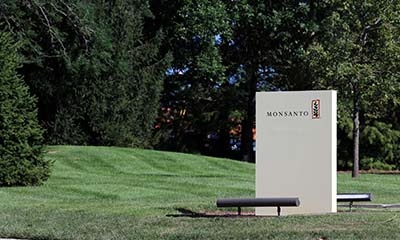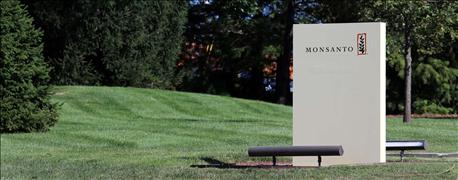
Monsanto Co., the world’s largest seed company, said Bayer AG’s latest $55 billion takeover offer is "financially inadequate" and doesn’t ensure a deal would be completed.
Monsanto also said in a statement Tuesday that it’s still open to further “constructive conversations" with the German company and other parties about a deal. Monsanto’s shares fell 1.4% to $104.96 at 8:35 a.m. before the start of regular trading in New York.
Related: Bayer raises bid for Monsanto to $125 per share

Monsanto said it's open to continuing conversations with Bayer. (Photo: wellesenterprises/Thinkstock)
Bayer said Thursday it upped its bid to $125 a share from $122 previously. The revised proposal came a day after Bloomberg News reported that St. Louis-based Monsanto might entertain a deal with another German chemicals giant, BASF SE.
Buying Monsanto would give Bayer a company that’s both the world’s largest seed supplier and a pioneer of crop biotechnology. The kind of genetically modified seeds that Monsanto started to commercialize two decades ago now account for the majority of corn and soybeans grown in the U.S. Monsanto also sells seeds in foreign markets including Latin America and India.
The offer from Bayer marks a reversal of roles for the U.S. company. Monsanto has long sought to become a one-stop shop for farmers by boosting its crop chemicals portfolio to complement its seeds business. To that end, it had pursued the purchase of Syngenta AG on at least three separate occasions over the years. While that push failed, the American seeds giant is now in talks to buy BASF SE’s agrochemicals unit, even as Bayer sought to acquire Monsanto.
Related: Investors cheer on Monsanto flip from predator to prey
Industry Reshaped
The crop and seed industry is being reshaped by a series of large transactions that may end up leaving just a few global players who can offer a comprehensive range of products and services to farmers. China National Chemical Corp. agreed in February to acquire Syngenta. Meanwhile, DuPont Co. and Dow Chemical Co. plan to merge and then carve out a new crop-science unit.
Despite its preeminence in seeds, Monsanto has become vulnerable to a takeover as a number of problems piled up this year. The company has clashed with some of the world’s largest commodity-trading companies and become locked in disputes with the governments of Argentina and India. Last month, Monsanto said year-end earnings would settle at the lower end of guidance.
Farmers have seen their incomes fall in the last few years amid declining commodity prices, and that’s spurred them to increasingly demand products tailored to their needs, according to Jason Miner, an analyst with Bloomberg Intelligence. Monsanto has become over-reliant on seeds at the expense of crop chemicals such as pesticides, something that spurred the company in its ultimately unsuccessful pursuit of Syngenta, Miner said.
Crop Chemicals
A deal with BASF means Monsanto could sell farmers a greater offering of crop chemicals along with seeds, helping it compete with industry leaders in the midst of deals that would create seed and chemical behemoths.
Monsanto was founded in 1901, its first product was the artificial sweetener saccharin. Until the late 1970s, the company produced highly toxic polychlorinated biphenyls, known as PCBs. It was also among companies that manufactured the mixture of herbicides known as Agent Orange and used as a defoliant by the U.S. in the Vietnam War.
Related: Bayer confident it can make a deal with Monsanto
To contact the reporter on this story: Simon Casey in New York at [email protected]
To contact the editors responsible for this story: Simon Casey at [email protected]
Nicholas Larkin
© 2016 Bloomberg L.P
About the Author(s)
You May Also Like




